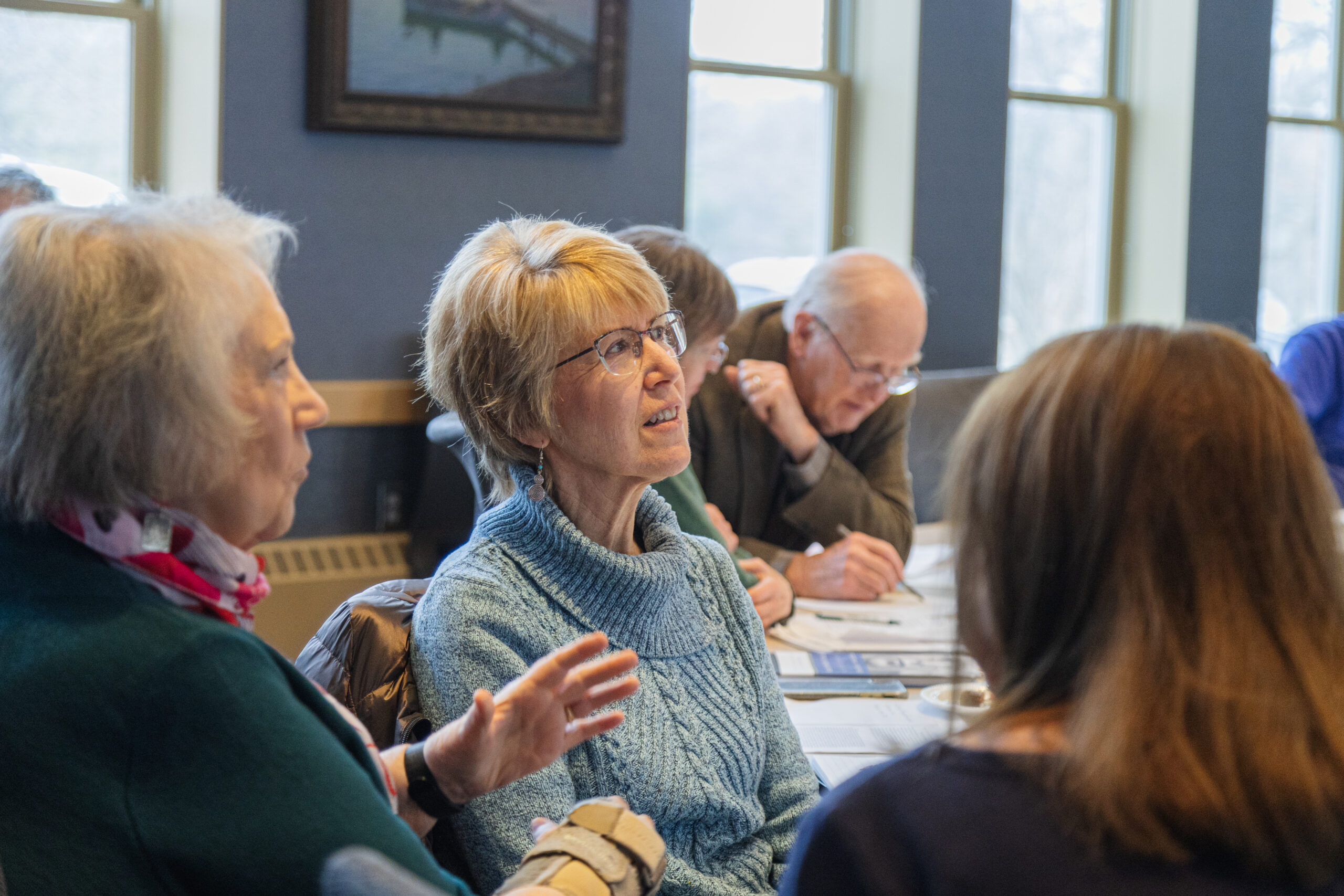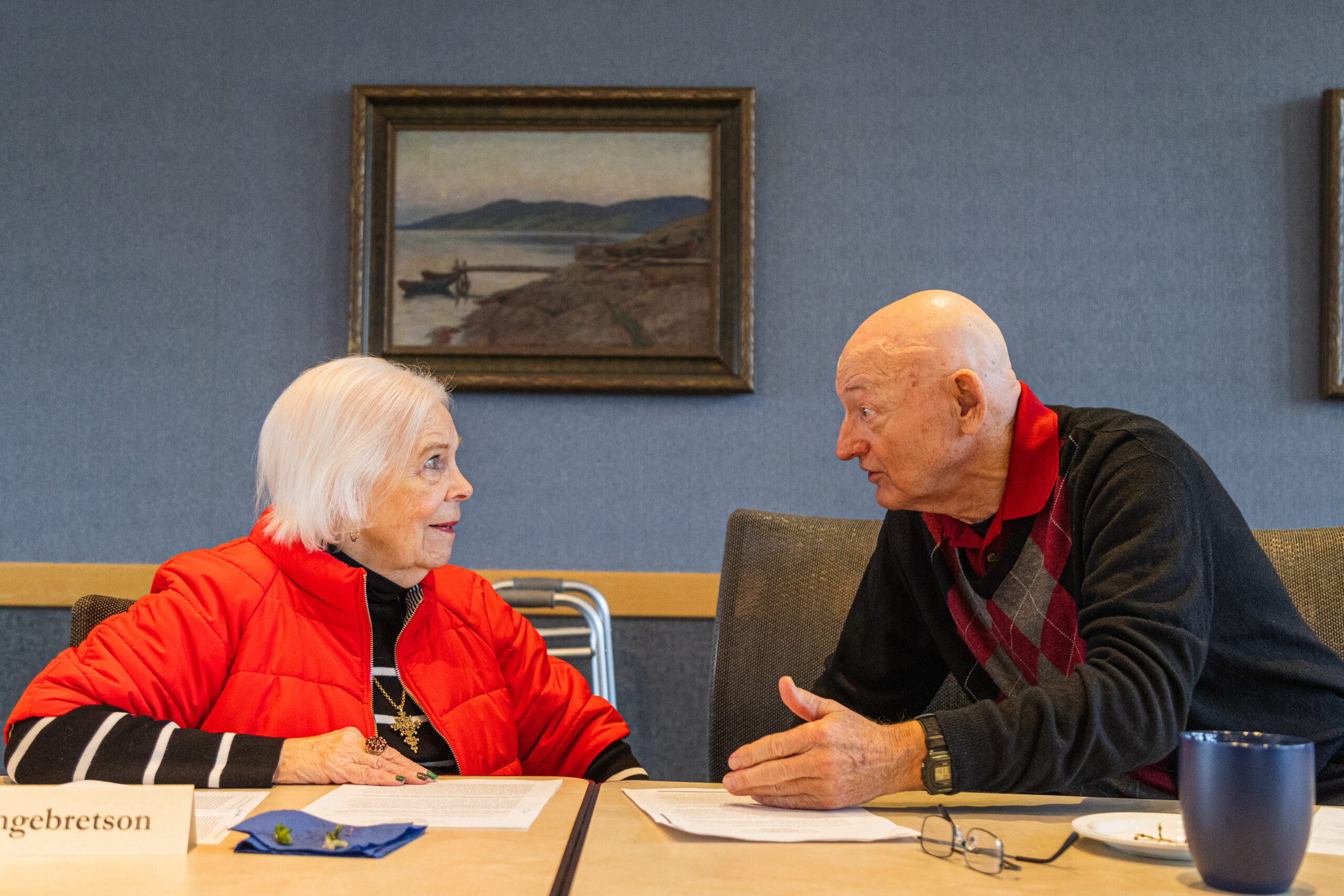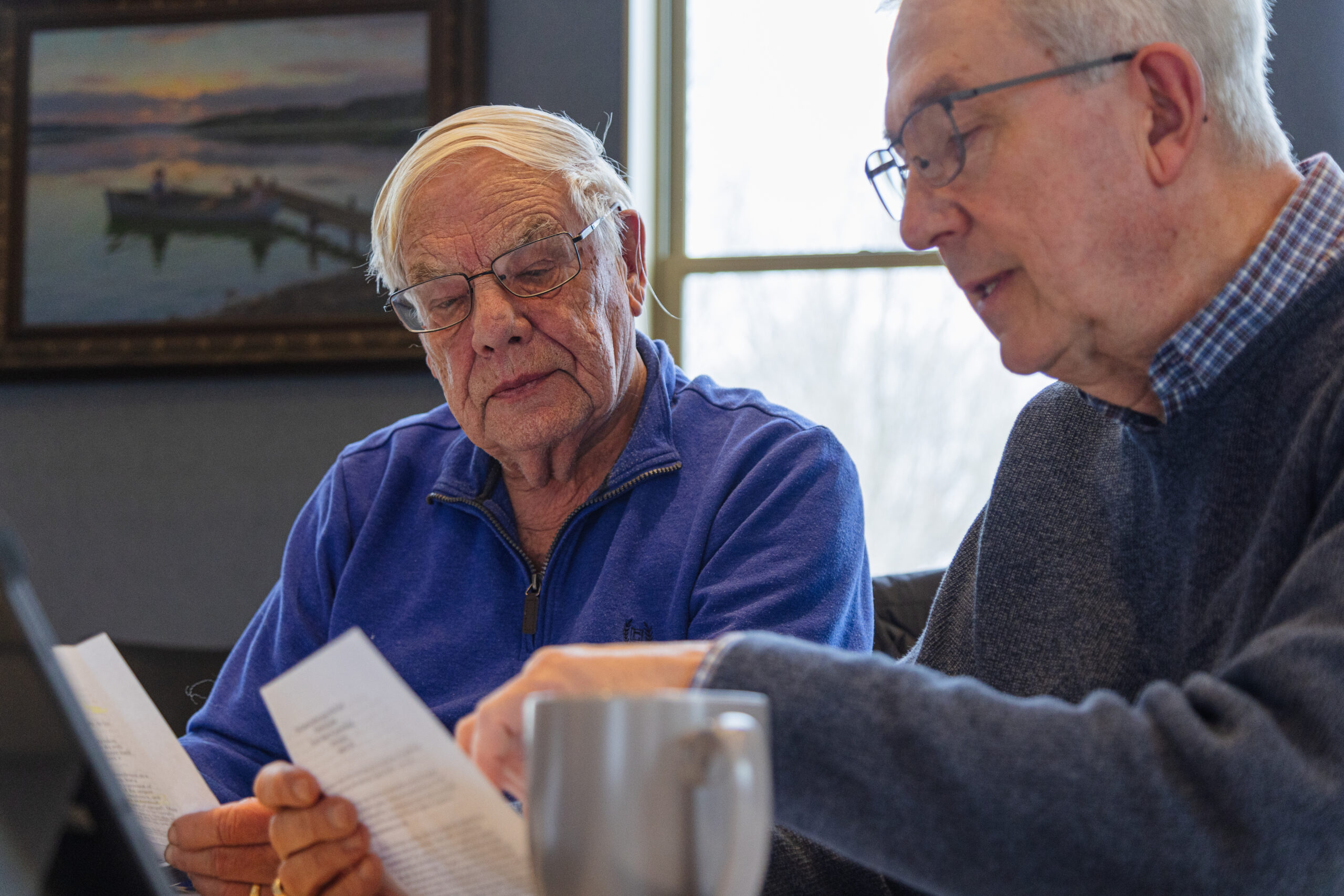Lifelong Learner Seminars at Luther College offer an opportunity for local alumni, friends, and area residents to enjoy academic programming at Luther College while engaging in meaningful, scholarly dialogue in a college setting.
The four-week sessions are held Wednesdays from 9 a.m.–noon in Loyalty Hall on the Luther College campus.
Registration takes place on a first come, first served basis. Classes are limited to 36 participants.
The cost per seminar is $50 per person. Participants may register for one seminar or all four at the same time. The registration form will show seminar real-time availability, and only the available seminars will display for registration selection.
Need to cancel? Let us know two weeks prior to each seminar for a refund.
The 2025-2026 offerings are full. Registration for 2026-2027 will open on Friday, August 7, 2026.
2025-2026 Lifelong Learners Seminars
Wednesdays, September 3, 10, 17, 24
Leader: Jim Griesheimer, Emeritus Professor of Music, Luther College
Description:
This course presents a continuation and expansion of materials introduced in the original Bach Cantatas series of 2023.
By the time of Bach’s birth in 1685, the cantata had undergone considerable development in Italy, appearing in four distinct phases over the course of the Seventeenth Century. As Italian baroque style spreads north of the Alps, an interesting transformation takes place. Vernacular texts and adaptation to a Lutheran culture, especially the use of chorale tunes, make the German cantata a “national” property and a great musical inheritance for Bach. We continue to explore the riches of the church cantata and its related forms of Passion and Motet, adding the roughly two dozen secular-occasional works for weddings, funerals, investitures and birthdays, and the handful of works based on texts from classical mythology.
Some fun topics: accounting for all those kiddos (20!), the instrumental menagerie, the Bach orchestra, the great tradition of organ builders, the Luther connection, the chorale, bosses and job descriptions, the vast menu of literary sources: authors, hymn composers and the Luther Bible.
Within this historical and technical framework, we will be enjoying real music of stunning complexity and surpassing beauty.
Wednesdays, October 1, 8, 15, 22
Leader: John Moeller, Emeritus Professor of Political Science, Luther College
Description:
This Life Long Learning course will examine significant speeches by U.S. presidents. Among the speeches we will study are those by Washington and Jefferson soon after the founding; Lincoln’s responses to slavery and the Civil War; Kennedy and Johnson’s calls for a New Frontier and Great Society in the 1960s; and Jimmy Carter and Barack Obama responding to the state of America as they found it. Edited versions of the speeches will be provided, as well as summaries for those who don’t want a lot of reading. For each speech, the participants will (a) evaluate its rhetorical effectiveness and what it says about presidential leadership, (b) discuss the ideas being put forward, and (c) ask whether the speeches have anything to tell us in 2025.
Wednesdays, February 4, 11, 18, 25
Leader: Marv Slind, Emeritus Professor of History, Luther College
Description:
This course will cover the “Viking Era,” approximately 750 to 1070 CE. It will look at Viking society and culture as they developed in Scandinavia and in Viking settlements elsewhere. It will also examine the technological developments (particularly maritime) which led to the Vikings’ expansion throughout Northern and Eastern Europe, and eventually across the North Atlantic. Session 1 will examine Viking society and culture; Session 2 will cover Viking religion, art, and literature; Session 3 will look at Viking ships and maritime technology; and Session 4 will show how the Vikings used that technology to expand and establish settlements to the East and West. The course will also look at the ways the application of modern technology (such as DNA analysis) have transformed our understanding of the Viking Era.
Marv Slind taught history at Luther from 2000 to 2013. His courses at Luther included “Scandinavia and the Baltic” as well as “The Vikings in History.” Before joining the Luther faculty, he taught similar courses at Washington State University, Pullman. In 2002 and 2003, he taught the course covering the Vikings and Medieval Norway at the University of Oslo International Summer School. He has led adult and student travel courses covering the Vikings, visiting sites in Norway, Denmark, and Ireland, and he has also visited Viking sites in Sweden, Iceland, and Newfoundland. Since 2014, he has been a frequent lecturer on cruise ships visiting ports in Scandinavia and the Baltic. Slind received his Bachelor of Arts in History from Pacific Lutheran University and his M.A. and Ph.D. in History from Washington State University. He also attended the University of Oslo International Summer School. Slind was a Fulbright Scholar at the University of Heidelberg, Germany.
Wednesdays, March 4, 11, 18, 25
Leader: Nan St. Clair, Emerita Professor of English, Luther College
Description:
The central text for this class is Alice Winn’s 2023 international bestseller, In Memoriam (which takes its title from Alfred, Lord Tennyson’s 19th century poem of the same title). Winn’s novel covers the first years of World War I and those immediately following it as they shape two upper class young men (17 and 18 when the novel begins, 22 when it ends) who struggle with their love and desire for one another at a time when homosexuality, dubbed by Oscar Wilde as the “love that dare not speak its name,” could lead to imprisonment. Shaped by the imperialist patriotism of poetry by Tennyson, Rudyard Kipling, and others, the two find themselves coping with the horrors and tragedies of life in the trenches as teenagers suddenly thrust into positions of leadership simply because of their class status.
Winn’s novel is not for the faint of heart. Her descriptions of life in the trenches of World War I are drawn from wide-ranging scholarship as well as personal memoirs by men and women who served in the war. World War I was the first war to use poisonous gas, airplanes, and machine guns, and as such the wounds it inflicted both physical and psychological were often unlike those visited upon soldiers in previous wars. Her protagonists Gaunt and Ellwood’s struggles to survive are coupled with their desire to express and fulfill their love for one another.
The novel will be supplemented with the anti-war poetry of men (who fought in this war) such as Wilfrid Owen, Rupert Brooke, Sigried Sassoon, and others as well as with short stories and authentic film clips of the trenches and battlefields. Paul Fussell’s The Great War and Modern Memory published fifty years ago and still highly relevant will provide a scholarly framework.
Nan St.Clair earned her Ph.D in English at the University of Iowa and spent most of my academic career as a professor at Simpson College in Indianola, Iowa. Both her paternal grandfather, Swan Johnson and her husband’s maternal grandfather, Otto Gundling, were soldiers in World War I and I will be sharing their photos, journals, and postcards home with the class.
Contact Information
Advancement Office
Loyalty Hall
Luther College
700 College Drive
Decorah, Iowa 52101
Phone: 563-387-1861
Fax: 563-387-1322


